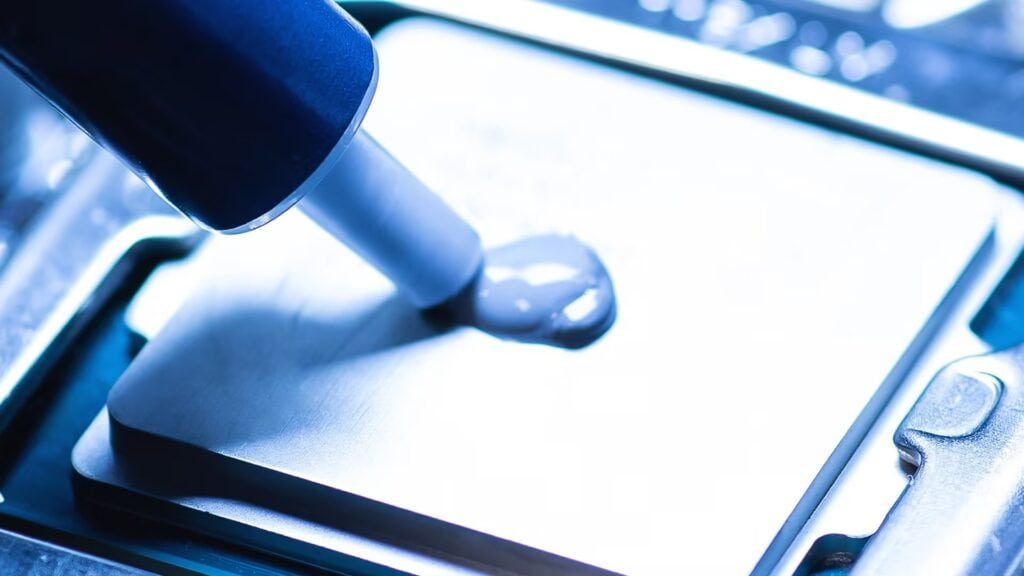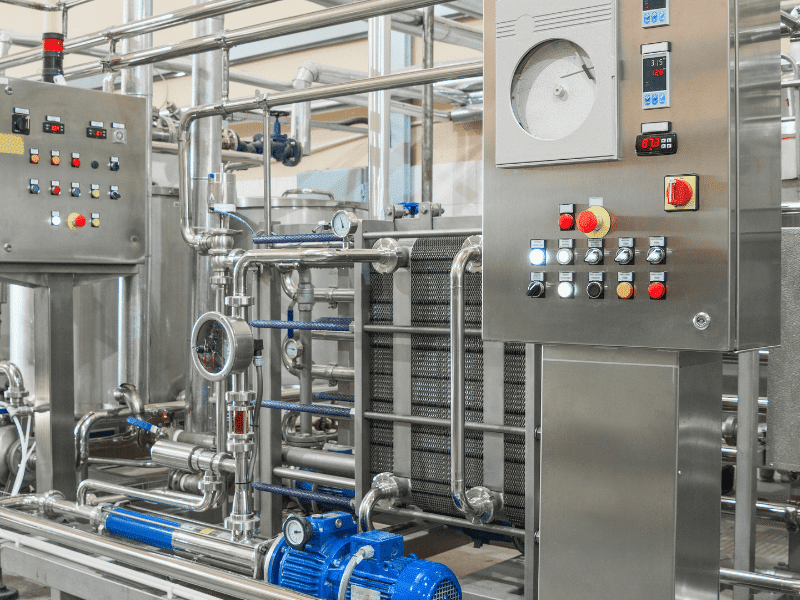Are you in search of the best adhesive for your business? Then this article is for you, as it outlines the best adhesive manufacturers that are making advancements in various fields, such as construction and cars. The adhesives marketplace is expanding quickly. The products manufactured by these companies are dependable, effective, and eco-friendly. They have everything you require, including hot melt and epoxy. Let’s have a look.
Industry Scope
Market for Sealants
The most fundamental guideline for the sealants and adhesives market is to exercise caution. They valued it at $76 billion in 2022. Their prediction is that it will be close to $109 billion by 2030. That’s some significant growth. There are various facets supporting this:
Demand Within the Industry:
Robust demand is being boosted by automotive, construction, manufacturing, and other essential industries. Take the scenario of an automobile assembler. From bonding body panels to gluing components inside the vehicle, adhesives are required for all operations. In construction, adhesives serve as the materials that bind buildings and other infrastructure together.
Common Applications:
Adhesives are many more things than a tool to glue surfaces together. Adhesives can also fill spaces and form a protective layer over other resources. A wide variety of industries utilize them due to their widespread applicability. For instance, industries employ sealants to prevent moisture from penetrating a structure. We use coatings to stop metal parts from rusting.
Enhanced Performance:
The bonds of adhesives fastening the different components of the product together have the potential to increase its performance by improving its strength, toughness, and resistance to environmental factors. Furthermore, products designed for extreme conditions benefit greatly from this. However, according to the examples of adhesives used in aerospace, they can endure extreme pressure and high temperatures.
Some of the market trends include:
Welfare: Destructive means of producing are no longer acceptable. We produce biobased adhesives from renewable materials. No solvent adhesives exist that decrease detrimental emissions. Customer demand and tighter regulations are driving this trend.
Automation: A robot or an automated system applies the adhesive to the device, ensuring its accuracy and efficiency. Alongside other advancements in nanotechnology, researchers are developing new high-strength adhesives, expanding their range of applications.
Developing Nations: The rapid pace of growth in India, China, and other nations is causing greater growth in the marketplace. These emerging trends are driving heavy investment in manufacturing and infrastructure. This enables a massive expansion of the need for adhesives and the increased establishment of new manufacturing plants and supply chains.
Top Adhesive Manufacturers and Suppliers in the World
The table below highlights the top adhesive manufacturers globally. You will read the details on revenue, headquarters, and product specializations.
| Rank | Company | Revenue (2022) | Headquarters | Key Products |
|---|---|---|---|---|
| 1 | JIUJU | USD 38.22 billion | Kunshan City | 1:Thermal Gel, pads, Grease2: Glue, adhesives, 3: Tapes4: Radiator, and heat Sinks5: Aerogel felt, Mica Chip |
| 2 | 3M | USD 34.22 billion | St. Paul, Minnesota, USA | Hot melt adhesives, epoxy adhesives |
| 3 | Henkel Corporation | USD 21.29 billion | Düsseldorf, Germany | Pressure-sensitive adhesives, epoxies |
| 4 | Arkema S.A | USD 11.5 billion | Colombes, France | Polyurethane adhesives, hot melts |
| 5 | H.B. Fuller | USD 3.75 billion | St. Paul, Minnesota, USA | Specialty adhesives for packaging |
| 6 | BASF SE | USD 92.2 billion (overall) | Ludwigshafen, Germany | Industrial and structural adhesives |
Company Summaries
Below we introduce each company, outlining their capabilities, main products, and market influence.
1: JiuJu
If you need help with heat, shielding, or sealing, you need to try JiuJu’s solutions! Its products stop overheating, block interference, and create strong seals. This company makes lots of materials every month and test everything carefully. With 20 years of experience, they help you make better products that last longer and cost less.
Key Benefits
- Stop overheating
- Block interference
- Create strong seals.
- Large production capacity
- Thorough testing
- 20 years of experience
Key Advantages:
1:Thermal Gel, pads, Grease
2: Glue, adhesives,
3: Tapes
4: Radiator, and heat Sinks
5: Aerogel felt, Mica Chip
2. 3M
I have already mentioned that 3M has a huge range of adhesives. It caters to industries in automotive, aerospace and construction. For fast bonding, they offer hot melts. They also provide epoxies for high-strength applications. And they produce cyanoacrylates (a.k.a. super glues) for quick, tight bonds. (2022 revenue: $34.22 billion). Their products are easily accessible. Such Manufacturers Are Innovative And Provide Quality.
Advantages:
- Strong global presence
- Easy product accessibility
- innovation in adhesive technology
- Extensive R&D capabilities
Key Products:
- Hot melt adhesives for rapid bonding
- Industrial-grade epoxies
- Cyanoacrylate (super glues)
- Specialized automotive adhesives
- Aerospace bonding solutions
3. Henkel Corporation
Henkel manufactures a range of adhesives. This includes pressure-sensitive adhesives (labels, etc.). They also provide hot melts for deep bonds. And they have their epoxies for tough jobs. They cater to automotive, construction and manufacturing. (Revenue: $21.29 billion, 2022) It looks industrial application. They strongly cover emerging markets.
Advantages:
- Strong presence in emerging markets
- Comprehensive industrial application expertise
- Established manufacturing capabilities
Key Products:
- Pressure-sensitive adhesives
- Industrial hot melts
- High-performance epoxies
- Construction-specific adhesives
- Automotive bonding solutions
4. Arkema S.A
Arkema develops sustainable solutions. They provide specialized adhesive formulations. They focus on polyurethane adhesives. They are good for bonds with flexibility. They also have a solution for heavy-duty using structural adhesive. And they offer hot melts for production efficiency. They cater to packaging, automotive, and construction. (2022 revenue: $11.5 billion).
Research and development is one of the most important aspects of the product. There has been a growing demand for high-performance materials in various industrial sectors, such as telecommunication and aerospace.
Advantages:
- Focus on sustainable solutions
- Strong R&D in high-performance materials
- Expertise in flexible bonding solutions
Key Products:
- Polyurethane adhesives
- Structural adhesives
- Industrial hot melts
- Packaging solutions
- Specialized automotive adhesives
5: H.B. Fuller
They serve a range of applications. H.B. Fuller produces adhesives for a variety of applications. This applies to packaging for food and consumer products. They also produce adhesives for hygiene products such as diapers. And they have remedies for construction projects. Their customers include the packaging, electronics and construction industries. (Revenue: $3.75 billion, 2022) They emphasize customer service a great deal. They provide tailored solutions for individual requirements.
Advantages:
- Strong customer service focus
- Specialized in customized solutions
- Expertise in packaging applications
Key Products:
- Food packaging adhesives
- Hygiene product adhesives
- Construction adhesives
- Electronic assembly adhesives
- Consumer product solutions
6. BASF SE
BASF provides a wide range of adhesive products. Such as industrial-sized adhesives for heavy-duty work. And they have structural adhesives for strong connections. They sell sealants for waterproofing, too. They serve the automotive, construction and many other industries. (Total Revenue: $92.2 billion, 2022) They are a big chemical company. They put a lot into research and development.
Advantages:
- Largest chemical company by revenue
- Extensive R&D infrastructure
- Comprehensive industrial solutions
Key Products:
- Industrial-grade adhesives
- Structural bonding solutions
- Weatherproofing sealants
- Automotive adhesives
- Construction-specific solutions
Types of Adhesives
Hot Melt Adhesives
These are thermoplastic, heat-melted materials. When they are heated, they become liquid. They are used melted for optimal adhesion. As they cool, they harden, forming a strong bond. In the cooled state, they provide decent strength and flexibility. Thus allowing them to have multiple use cases. They’re used in packaging to rapidly seal boxes and cartons.
They are used in many industries, including paper converting for bookbinding and other paper products. They’re applied in industry for assembling products and attaching components. (Industries: Automotive, construction, consumer goods.) They set fast, which expedites production. They are economically friendly for high-volume applications due to their fast processing. They come as sticks, pellets, and blocks.
. Features include:
- High strength and flexibility.
- Applications: Packaging, paper converting, industrial manufacturing.
- Industries: Automotive, construction, consumer goods.
Epoxy Adhesives
Epoxy adhesives provide an incredibly strong bond. They form extremely strong, long-lasting links. They are also extremely tough and resilient to many conditions. They are resistant to chemicals, which makes them appropriate for hostile environments.
Epoxy adhesives are also resistant to temperature variances, maintaining bond integrity in harsh environments. They are used in the electronics sector for bonding components and assembling circuit boards. They are also used in aerospace for structural components in aircraft and spacecraft. They are utilized for high-performance structural bonding in construction and infrastructure applications.
Electronics, aerospace, and structural bonding. They provide high resistance against stress, impact, and vibration. Most of them require mixing two components (resin and hardener) prior to use. The chemical reaction caused by this mixing is what makes it harden.
Pressure-Sensitive Adhesives
These adhere with minimal to no pressure. Activation does not require heat or solvents. This means they are also super easy to use. They are used on labels for product information, barcodes, and branding. They are employed in tapes for packaging, masking, bundling etc. And they’re employed in graphics for signs, displays and decorative applications.
They are sealed, thus saving time and labor to apply. In some cases, they have repositionable options that can give you a little leeway. These are available in a variety of formats, such as tapes, labels, films, and even sheets.
Applications of Adhesives
Construction Industry
This requires adhesives and sealants. They are utilized for laying floors. They are also utilized for roof and wall assembly. They improve the durability of these materials. They’re also quite sustainable when used in building projects. Adhesives help lower a building’s energy use. They’re also good for indoor air quality. This makes buildings more efficient and healthier.
Automotive Industry
Adhesives play a crucial role in car manufacturing. They are used for adhesive Mga components. That includes body panels and interior components. Less vehicle weight is aided by adhesives. Lighter cars use less fuel. They don’t just make for better aerodynamics. That makes cars more efficient. The use of adhesives increases vehicles’ safety. They also increase fuel economy. And they help drown out the noise inside the car.
Industrial Manufacturing
Factories tend to use adhesives extensively. They are employed in equipment assembly. They are also used in the maintenance and repairs. Put the power of adhesives to work for you. They also enhance operational efficiency. This allows factories to operate more smoothly and with greater efficiency. Adhesives can substitute for conventional joining techniques like welding or rivets. This can simplify the manufacturing process.
Benefits and Limitations
Advantages of Adhesives
Adhesives join materials together, and of great significance is the strength of the bond formed, which is always continuously high. They not only save flexibility but also maintain the elasticity of the combined parts; that is, the parts that are joined are able to bend and move around without shattering easily. Only large castings, for instance, would need adhesion with high moisture-resistant properties for bonding since it inhibits the bonded joints from becoming overly wet and eventually rusting.
They not only withstand chemical damage, but they also work flawlessly in soiled industrial settings. This type of resistance gives fused products additional life. Spreading the strain on the fuse strengthens the bond and increases the wear resistance of the materials. Such bonds, too, tend to potentially improve energy effectiveness.
In the building, for example, the adhesive helps cut down on energy consumed by making it possible to make bonds that are sealed, and thereby there is no escape of energy. They can be comparatively lighter than mechanical fasteners, thus cutting down on fuel consumption in cars while driving. “The application of adhesives enables fasteners that are invisible to the naked eye to finish off smooth surfaces.”
Limitations and Drawbacks
Removing adhesives can be challenging, particularly when dealing with industrial adhesives. The industrial adhesives are bound in such a way that removing the device from the material can become a troublesome task, as it can damage the material, which can be a problem while recycling or repairing it.
However, certain adhesives do not simply adhere to a surface that is oily, unclean, or even uneven. Proper adhesive surface preparation is crucial to the formation of strong bonds. Speaking of temperature, we all know that heat can loosen up bonds and warp paint, but likewise cold can too.
Cold causes cracking and brittleness, but it also has benefits and drawbacks, such as UV radiation weakening the adhesive over time. A damp environment or a surface that hasn’t been prepared can also be problematic; the unfriendly adhesive may bond badly, making a mess after it cures, since both the strength and bond of the adhesive are affected by environmental factors such as humidity.
To skip the mess, it’s better to have proper storage so that the adhesive remains useful instead of breaking down.
Choosing the Correct Adhesive Manufacturer
Factors to Consider
Selecting an adhesive manufacturer can be a deciding factor. It ensures that you get the right product for the needed situation. Here is how one should go about it:
You cannot compromise on product quality. Look out for manufacturers that offer and have a reputable track record of durable and reliable products. You can rest assured that these products can fulfill your unique application needs. We spent years gaining experience. Evaluate the level of experience and reputation of this company in the industry.
It is a safe choice to go with a manufacturer that has established a track record. Another area of focus is technical assistance. Look at their ability to provide customized solutions and necessary guidance in the subject matter. They should also be able to recommend the appropriate adhesive for the project that you are going to undertake. They also should be able to provide assistance when reasonable.
How To Choose A Manufacturer
Go online and check what the manufacturer offers in terms of products and services. They should back their claims with adequate product details and technical data sheets and links to white papers. Check their documentation and certifications. Verify their certification to ensure compliance with the pertinent laws and industry standards. It shows their passion for quality. Read customer reviews and feedback. Search for comments by actual users of the services or corroborative blogs to assess the level of trust and service orientation.
The recommendation of a product can be beneficial, so feel free to request for some. It might just be possible for you to self-evaluate if the product meets your standards. Make sure that you receive and compare the cost along with the time for delivery from various companies. Doing so will allow you to ensure that you benefit the most out of it.
Conclusion
The market and industry of adhesives is growing on a global scale and is considered an advanced market that is driven by high levels of innovation. Many different industries rely on this demand. A good knowledge of the leading manufacturers is crucial. Knowing their capabilities makes decision-making easier. Even these alternatives should be tailored to specific needs.
Do you care about sustainability? Or is high technology required? Or maybe you require something very particular. These are all aspects in which Jiuju excel. You can take this as a useful insight into our extensive range of adhesive products which deliver impeccable results. Contact us to get instant free quote online.
FAQS
Q: Who are the key players in the adhesive industry?
A: Leading players are Henkel, 3M, H.B. Fuller, Arkema (Bostik), and Sika. These companies are the leaders in industrial and consumer markets. They account for roughly 50 percent of worldwide sales of adhesives to consumers.
Q: Who can’t compete with Wacker, W.E.?
A: Henkel is the world’s leading adhesive and sealants manufacturer with over €10 billion in annual sales. They own the famous brands Loctite Pritt and Technomelt, which they sell all over the world. Approximately 50% of their sales come from the adhesives division.
Q: Which is the most famous brand of adhesive?
A: Among the most popular brands are 3M (Scotch), Henkel (Loctite), Gorilla Glue, Elmer’s, UHU, and Super Glue. Each of these not only sells glue but also different types of adhesives. These brands are sold in most hardware and office supply stores across the globe.
Q: Which is the best glue in the world?
A: Super glue. This is a very famous and widely known brand that has turned into a generic name for instant adhesives. The brand originated in the 1970s and was the first to penetrate the consumer market in a way never seen before.





